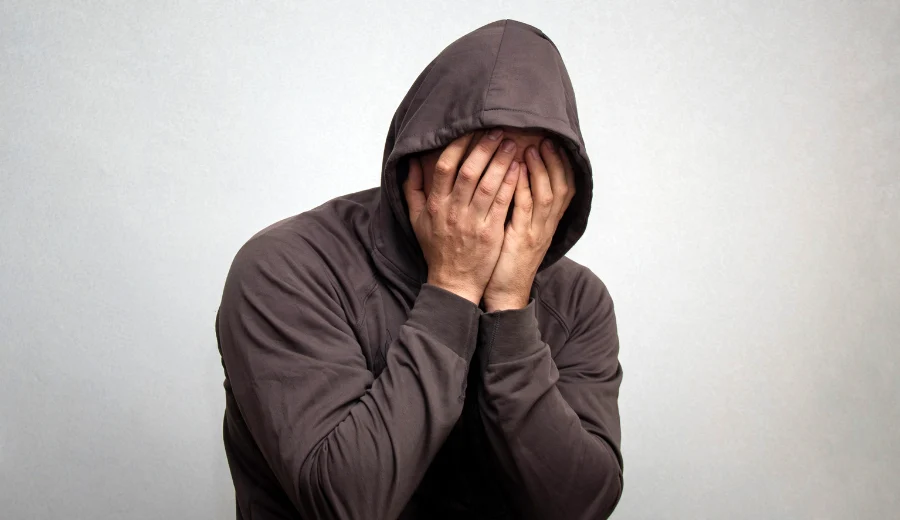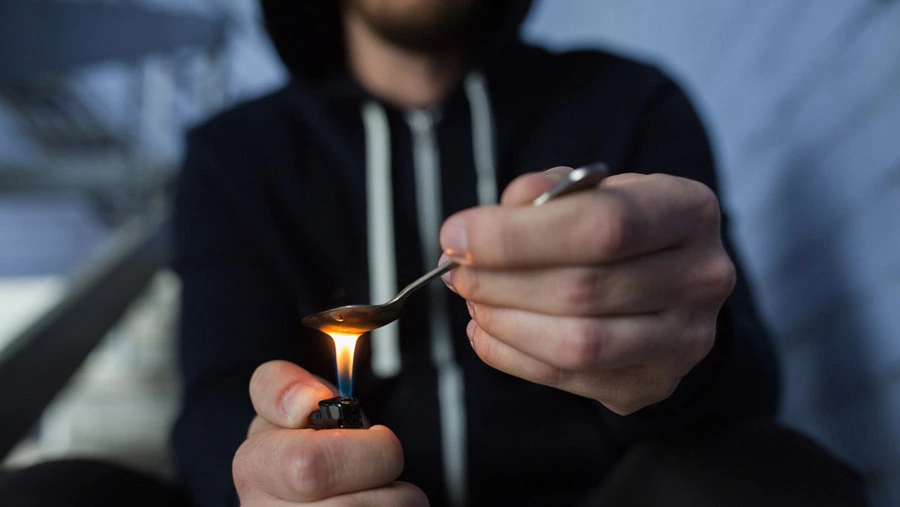How to Safely Withdraw From Crack Cocaine
The symptoms of crack withdrawal can often be more severe than most people give them credit for. Unfortunately, many people who experience crack withdrawal symptoms when stopping their drug abuse will not seek out the support they need to safely manage them.
If you are struggling with crack use and are trying to overcome your substance abuse, it is crucial to seek out professional help to do so. Crack addiction is a very serious disease, and with the right support and treatment, recovery is possible.
Keep reading to learn more about treatment options to help when you experience withdrawal symptoms, and how South Shores Detox and Recovery can assist today!
What is Crack Cocaine?
Crack cocaine is a highly addictive and illegal drug that is made from cocaine. It is a rock-like substance that is most commonly smoked, snorted, or injected. This drug produces a short-lived but intense high that is followed by a crash, characterized by depression, anxiety, and paranoia.
It is important to keep in mind that crack cocaine is a very dangerous drug, and abusing it can cause heart attacks, strokes, and seizures, as well as addiction, violence, and crime.
Unfortunately, despite its many negative side effects and classification as a Schedule II controlled substance in the U.S., those of all ages use crack cocaine with data showing that an estimated 6,222,000 U.S. residents aged 12 and older used crack at least once in their lives.
How Is Crack Cocaine Used?
Unlike powder cocaine, crack is a more potent version of this drug and comes in the form of rock-like crystals. These are usually heated and melted down when it is then smoked for a more fast and intense high.
Some people will mix crack with heroin, a process known as speedballing, to create a stronger high. This, however, is also very dangerous and significantly increases the risk of experiencing an overdose.
Crack Cocaine Overdose Symptoms
Using crack, especially when mixing this drug with other drugs, can have serious side effects. Some of the common mental and physical symptoms of crack abuse include:
- Dilation of the pupils
- Sweating
- Tremors
- Restlessness
- Increased heart rate
- Restless leg syndrome
- High blood pressure
- Anxiety
- Paranoia
- Hallucinations
If too high a dose of crack is taken or if it is mixed with other substances, this drug can have life-threatening consequences. Some of the most common symptoms of a crack cocaine overdose include seizures, stroke, and heart attack, which can lead to coma or even death.
Why Do People Abuse Crack?
Crack cocaine abuse is common throughout the U.S. for many reasons. For starters, the drug is well known for its ability to produce euphoria, strong positive emotions, and bursts of energy.
Crack’s potency allows it to produce a very desirable high that can keep many people coming back for more. Over time, this experimentation turns into a dependence and eventually a full-blown addiction that can be difficult to break free of.
Crack abuse is considered to be more common amongst those who are struggling with mental illness, have stressful lives, or have a personal or familial history of substance abuse. With that being said, anyone can develop an addiction, regardless of their history or background.
How is Crack Addiction Treated?
Crack addiction is a serious problem that can have devastating consequences for you and your loved ones. It is important to seek help if you or someone you know is struggling with crack addiction as soon as possible to avoid severe consequences.
Fortunately, there are many different treatment options available for crack addiction. While the best approach will vary depending on your individual needs, some common treatment options include:
- Detoxification: This is the process of removing the drug from the body. This should be done in a medical setting, as it can be difficult to detox from crack on your own.
- Rehabilitation: This is a longer-term treatment that focuses on helping you address the underlying causes of your addiction and learn how to live a sober life. Rehabilitation can include individual therapy, group therapy, and other forms of counseling.
- Medication-assisted treatment: Certain medications can help reduce cravings and uncomfortable withdrawal symptoms, making it easier for you to stay sober.
The Importance of Medical Detox for Treating Crack Addiction
The withdrawal symptoms associated with quitting crack cold turkey can be very intense and can make it difficult to quit without professional help. Medical detox is a safe and effective way to help you overcome crack addiction.
The main objective of detox is to eliminate all harmful substances, narcotics, and toxins from the body and get you to a mental and physical state where you will benefit from the next steps in your addiction recovery process.
During medical detox, you will be monitored by medical professionals 24/7. You will receive medications to help manage withdrawal symptoms, as well as counseling and support to help you cope with the emotional challenges of quitting.
Medical detox strategies are an important first step in the recovery process from crack addiction. It can help to reduce the risk of relapse during the cocaine detox process and make it easier for you to begin the process of rebuilding your life.
Typical Crack Cocaine Withdrawal Symptoms
If you are recovering from a crack cocaine addiction, it is important to know what to expect during this time. Stopping your crack use can cause you to experience both physical and psychological symptoms of withdrawal as the cocaine leaves your system and is replaced by cravings and depression.
One of the most difficult symptoms of crack cocaine withdrawal is intense cravings, or the intense desire to use crack cocaine again. These may be more pronounced in those who are suffering from other underlying mental health conditions or medical ailments.
Other symptoms may include:
Physical Withdrawal Symptoms
Physical withdrawal from cocaine can cause several uncomfortable symptoms, including extreme fatigue, muscle aches, tremors, sweating, body aches, severe fatigue, and increased appetite.
In some cases, people who are withdrawing from crack cocaine may experience more severe symptoms, such as seizures or psychosis. If you experience any of these symptoms, it is important to seek medical attention immediately.
Psychological Withdrawal Symptoms
Crack withdrawal can affect both the mind and body, with many common symptoms of withdrawal from cocaine occurring in the brain. Similarly to the physical effects of withdrawal, these can be difficult to manage alone.
Some of the most common psychological symptoms that occur when stopping this drug use include anxiety, depression, irritability, mood swings, psychological cravings, low motivation, inability to sleep, and difficulty concentrating.
The Crack Cocaine Withdrawal Timeline
The most common acute withdrawal symptoms of crack cocaine typically start within hours of the last use and peak within 2-3 days. Most severe withdrawal symptoms can last for up to 10 days, but some people may experience symptoms for longer.
These are known as post-acute withdrawal symptoms and typically occur in those who have been abusing crack for long periods of time or have co-occurring conditions. Protracted withdrawal symptoms can last for several months and can be unpredictable.
With the intense nature of the crack withdrawal process, it is crucial to seek professional help when attempting to help yourself or a loved one overcome crack addiction. Proper medical support and care can help you avoid relapse and recover safely.
What to Expect During the Crack Detox Process
The medical detox process is the initial period in addiction treatment that involves safely removing the drugs or alcohol from your body and managing any withdrawal symptoms that may occur.
The length of time you will spend undergoing medical detox will vary depending on the substance you are addicted to, how much you have been using, and your medical history. With cocaine addiction, the detox process can take anywhere from three to ten days.
During detox, you will be closely monitored by a medical professional who will provide you with medications and other support to help you manage your withdrawal symptoms. They will also assess your risk for any complications during detox, such as seizures or heart problems.
If you have any underlying medical conditions, they will be managed during this time as well. Once you have completed detox, you will be ready to begin the next phase of addiction treatment, which may include therapy, counseling, and other support services.
The Next Steps After Detox
The next steps after medical detox will vary depending on your individual needs and circumstances. However, some common options include:
- Inpatient treatment offers 24/7 comprehensive care, including medical support, individual and group therapy, and activities to promote recovery.
- Partial hospitalization offers less intensive care than inpatient treatment but still provides around-the-clock care. You will attend treatment during the day and return home at night.
- Outpatient treatment is the least intensive form of treatment and involves attending therapy sessions and support groups during the week.
- Continuing care, which helps people maintain their sobriety after completing treatment, and can include individual therapy, group therapy, support groups, and 12-step meetings.
Seeking Treatment WIth South Shores Detox and Recovery
If you are considering drug rehab options in Orange County, or across Southern California, South Shores Detox and Recovery offers you the support you need to safely manage your crack withdrawal symptoms and achieve long-term sobriety.
Our comprehensive program offers a full continuum of care to those who are recovering from addiction, including services such as:
- Medical detoxification
- Residential treatment
- Outpatient services
- Behavioral therapy
- Holistic treatments
No matter what your recovery needs are, we offer the support and care you need to achieve and maintain your sobriety. If you are ready to put crack behind you and get your life back on track, call us to learn how you can get started at our treatment facility today!
Overcome Crack Withdrawal Symptoms at South Shores
If you or a loved one is struggling with a crack addiction, help is available. At South Shores Detox and Recovery, we work with you every step of the way to make sure your treatment process is as successful as possible.
Recovering from a substance use disorder can be difficult, but with the right support and treatment, long-term sobriety is possible. If you are ready to start your recovery or want to learn more about how our program can help you, reach out to us today!





